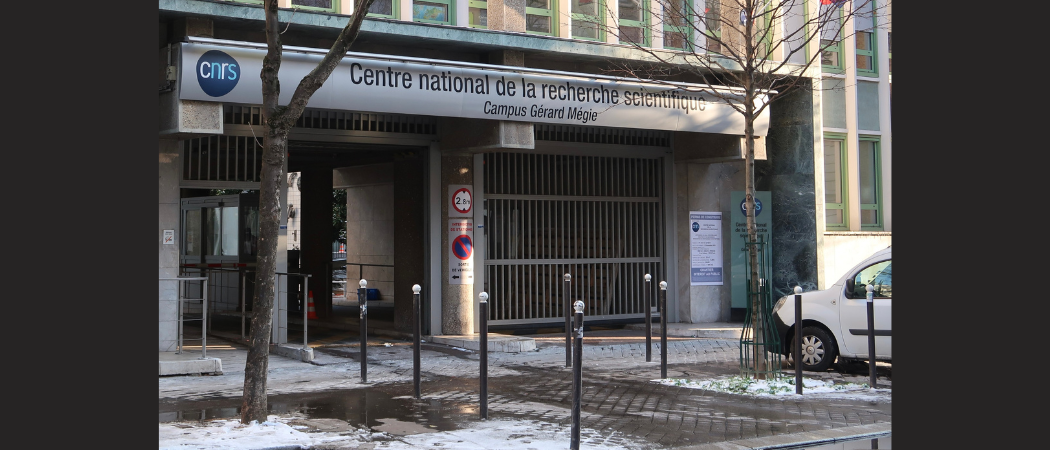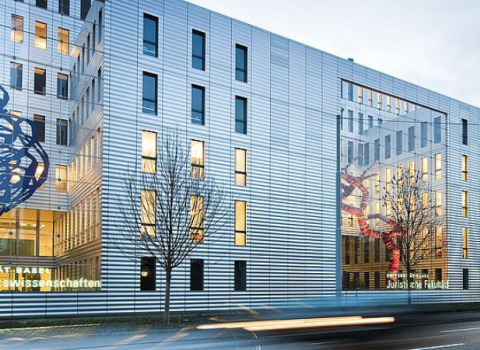An independent expert group recommends a ‘commando operation’ to urgently cut the bureaucracy that leaves young researchers spending up to 50% of their time on administration, and for more diversified and sustainable funding for France’s largest research organisation

The Centre national de la recherche scientifique in Paris. Photo: Polymagou / Creative Commons
France and Europe’s largest research institute, the Centre national de la recherche scientifique (CNRS), is too bureaucratic, short of money and needs more strategic and transparent governance, according to a report by an international expert group.
While it commends the world-leading scientific output and importance of CNRS, the report points to several shortcomings. Chief among this is the “administrative burden” which is “too heavy at all levels”.
“CNRS’s senior management does not seem to fully appreciate the deep level of frustration [at the administrative burden] throughout the system,” the report says. It recommends launching a “commando operation” to urgently and decisively reduce the bureaucratic overheads that can mean young researchers spending up to 50% of their time on administrative tasks, taking them away from their scientific work.
The report also calls into question the centre’s budget, which was €3.7 billion in 2021, saying there should be more diversified and sustainable financing. The 2021 budget was made up of €2.8 billion of public funding and €900 million from CNRS’s own revenues. The continuing deterioration in competitive salaries for engineers, technicians and researchers “poses a risk to maintaining CNRS’s level of excellence”, the report says.
The development of human resources and a lack of training opportunities necessary to retain top talent are also criticised.
Over and above the stifling bureaucracy, the report calls into question the governance of CNRS, saying the main decision-making processes are unclear. “There is very little transparency about how key decisions are prepared and made, and a lack of clarity about the strategic directions and criteria on which these decisions are based,” it says.
It notes the challenge in maintaining a balanced approach between top-down and bottom-up management, which is important in scientific fields, but says that there must be a re-examination of the different roles and relationships within the organisation.
More positively, the experts highlighted the great effort made by CNRS to promote technology transfer and commercialisation of the research it funds.
CNRS welcomed the report, saying that it will help the organisation to “perform even better in the future”. Head of CNRS Antoine Petit said that “all the recommendations provide opportunities to reflect on”. He added that not all of them are within the control of CNRS itself, for example the low budget which is made up mostly of public funds.
The centre also acknowledged the frustration over bureaucratic processes as outlined in the report, saying that it has committed to tackling this challenge. It highlighted the fact that CNRS two years ago began the process of hiring 100 additional European project officers.
It also threw the criticism of the administrative burden back at the European Commission, saying it too could use a “commando operation” to simplify some of its research procedures.
On staff salaries, Petit agreed with the report that these need to be higher to maintain the attractiveness of the centre.
The 12 recommendations to improve CNRS are aimed at both the organisation itself and the Ministry of Higher Education, Research and Innovation, ahead of contract negotiations between CNRS and the French state for the period of 2024 – 2028.
The report was commissioned by the High Council for the Evaluation of Research and Higher Education (Hcéres) and carried out by a team of 16 international experts.
The Hcéres report comes on the back of a separate inquiry into France’s research system as a whole, led by geophysicist Philippe Gillet, whose team put forward 14 proposals to simplify and transform the system in July.
The criticisms in the Gillet report are similar to those levelled against CNRS, namely that the research system in France is too bureaucratic and underfunded.
A new structure centred around six strategic goals was proposed to modernise the system and to make the environment easier to navigate for researchers. The report also called for investment in basic research to be doubled from €1 billion to €2 billion.





 A unique international forum for public research organisations and companies to connect their external engagement with strategic interests around their R&D system.
A unique international forum for public research organisations and companies to connect their external engagement with strategic interests around their R&D system.